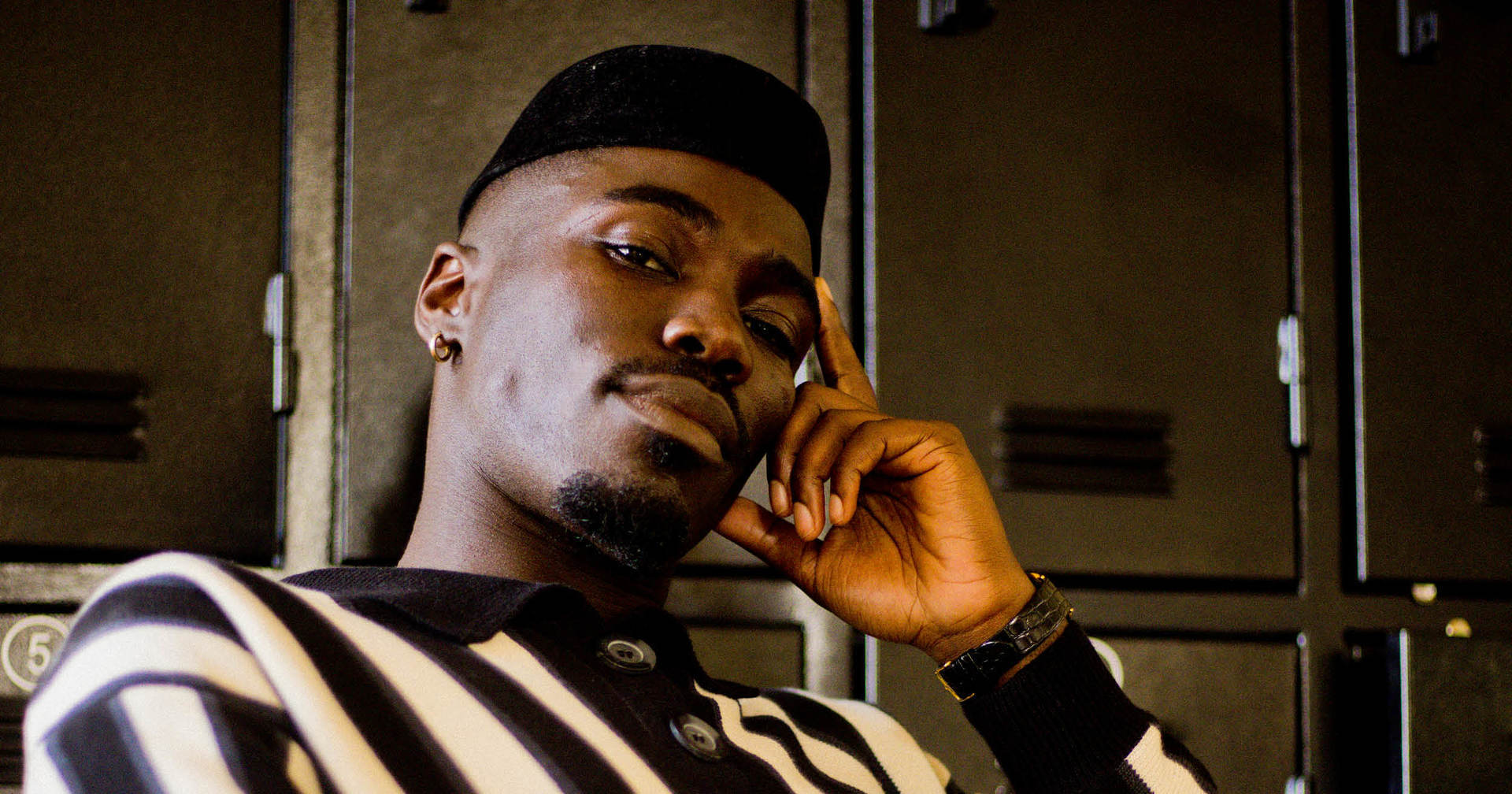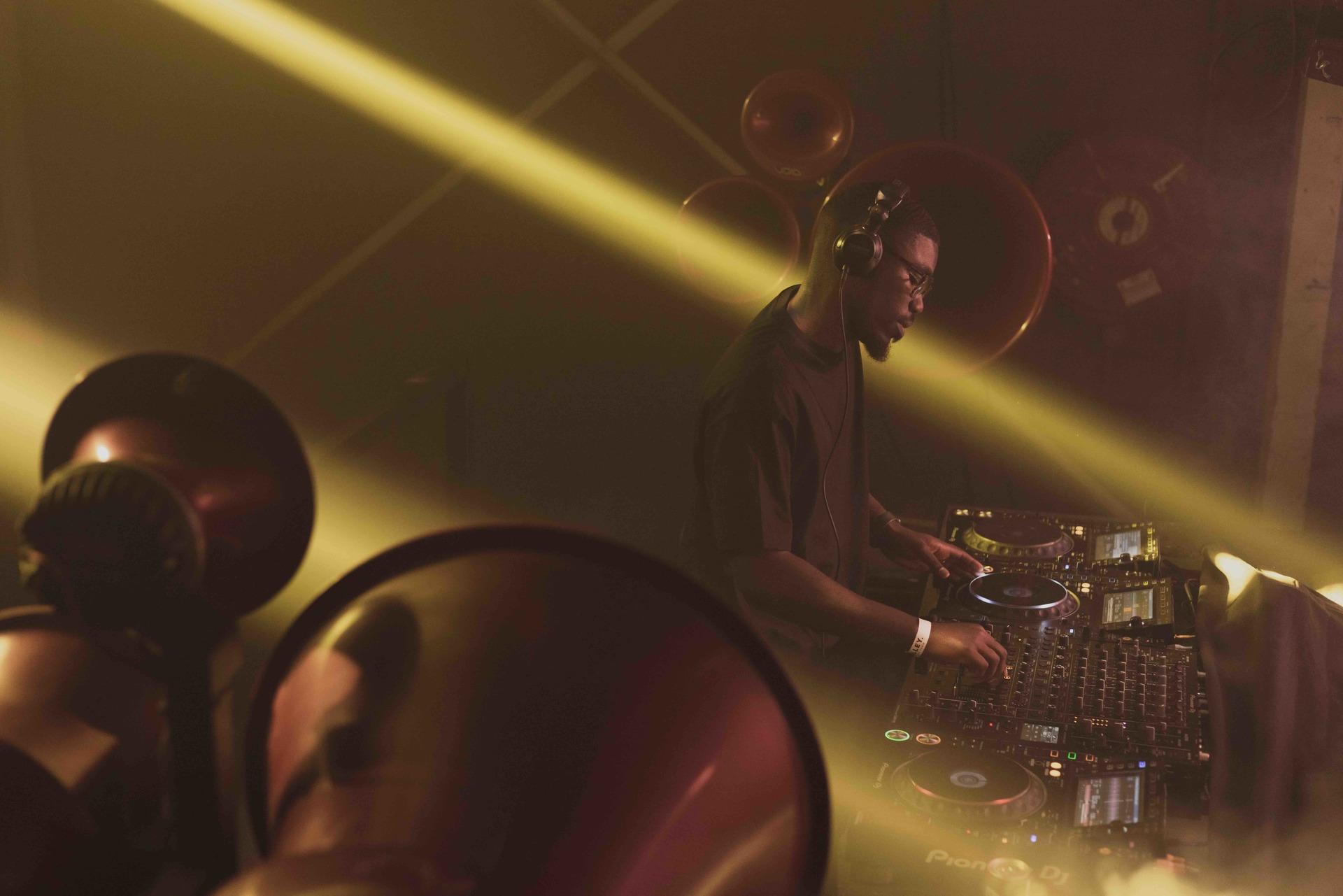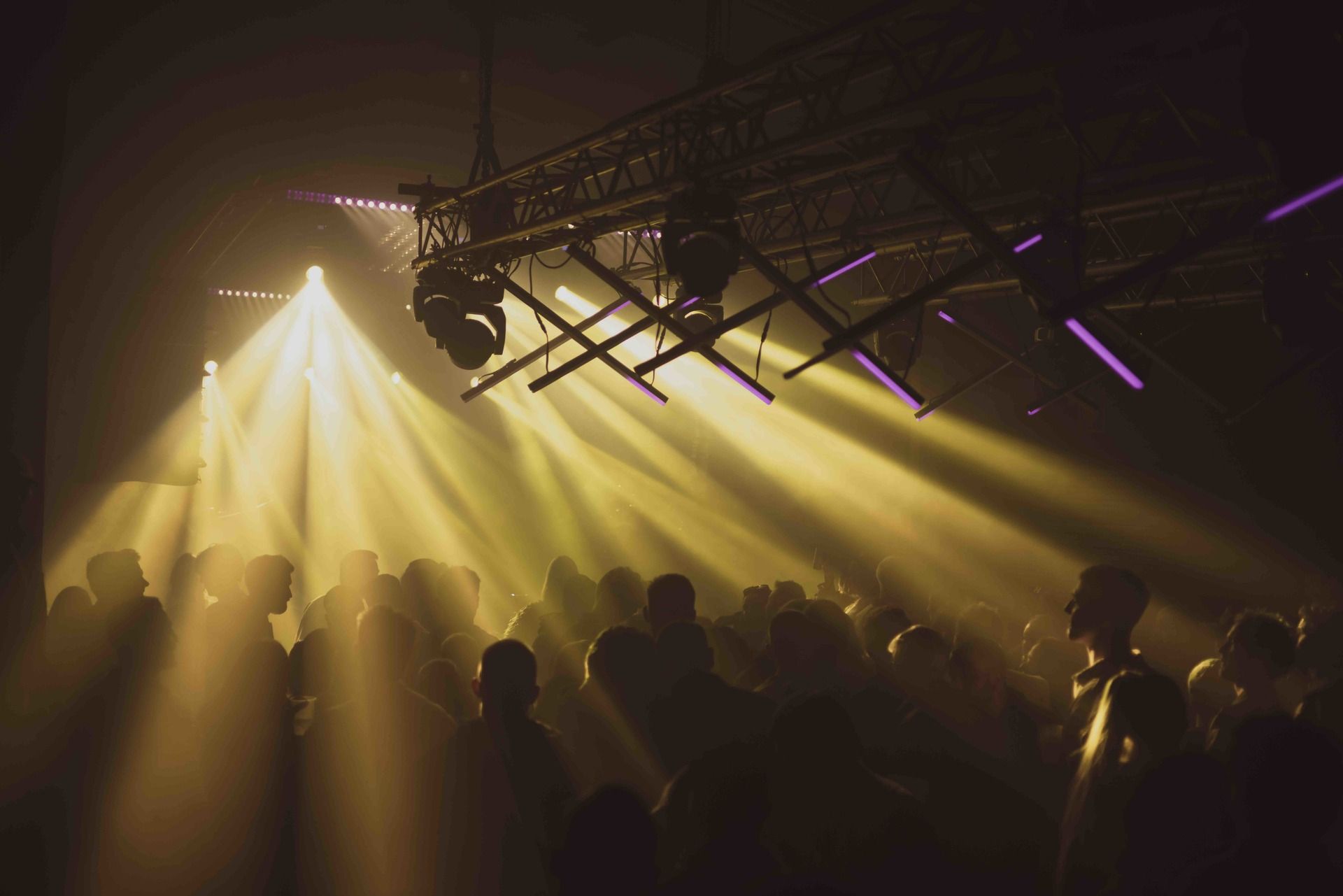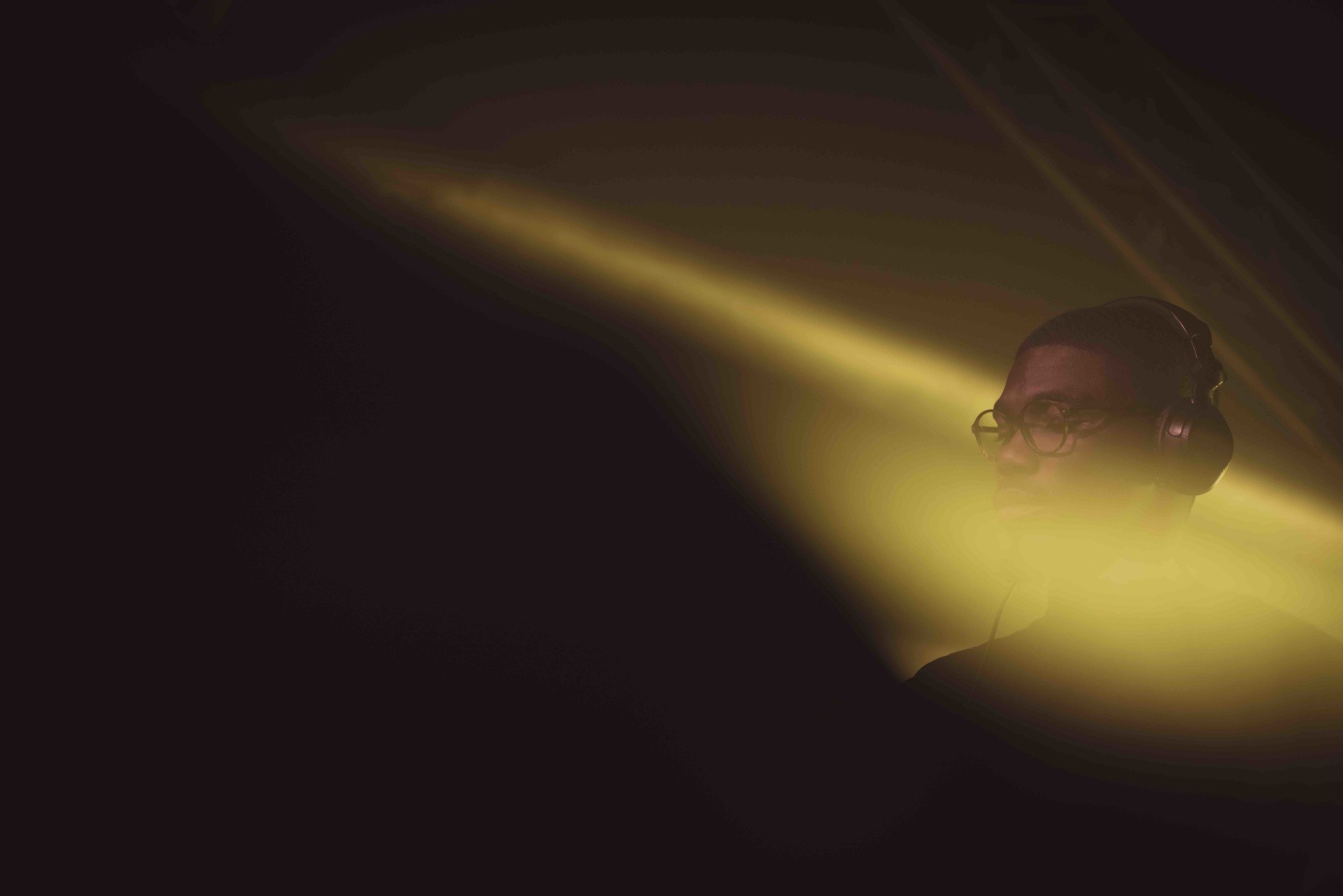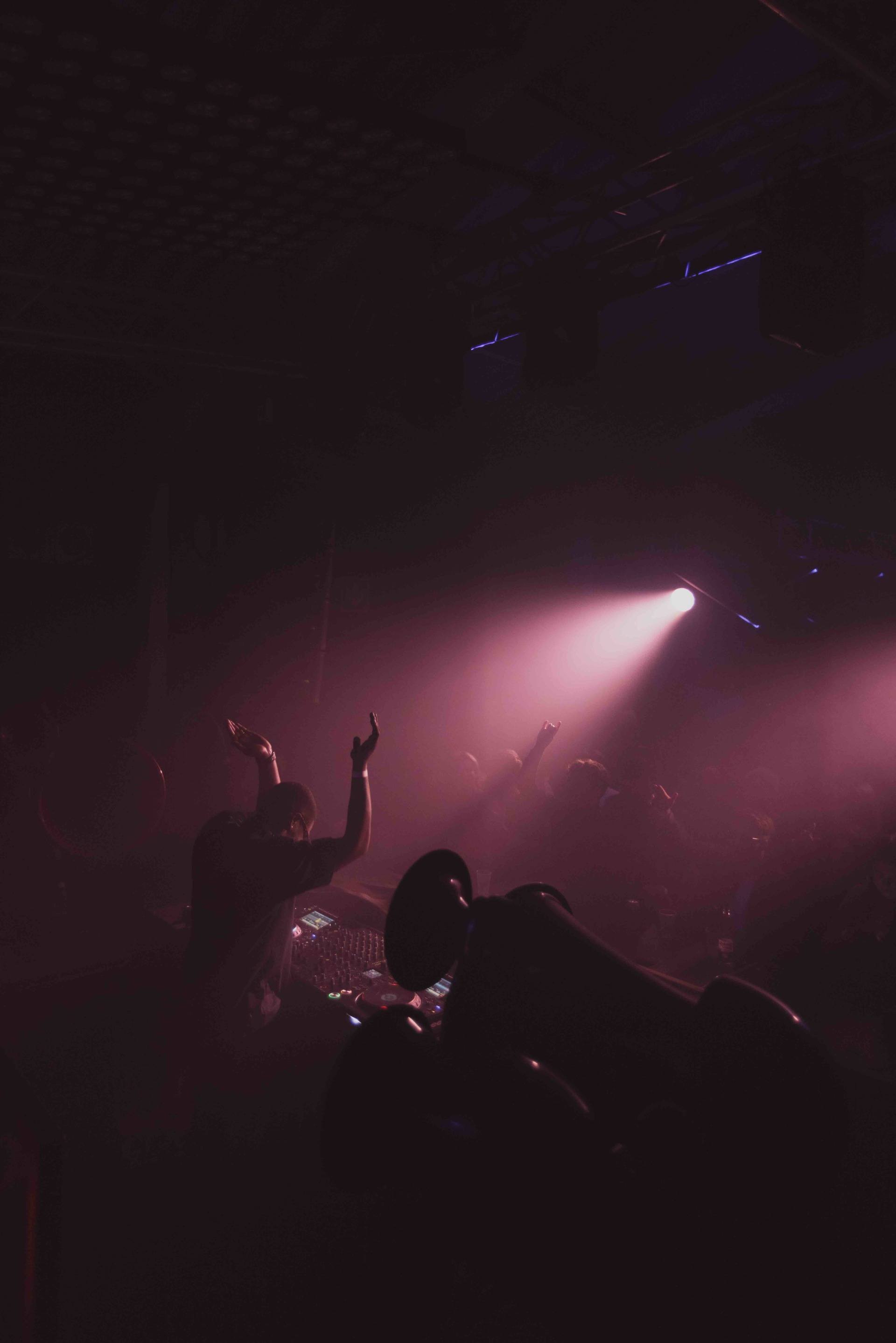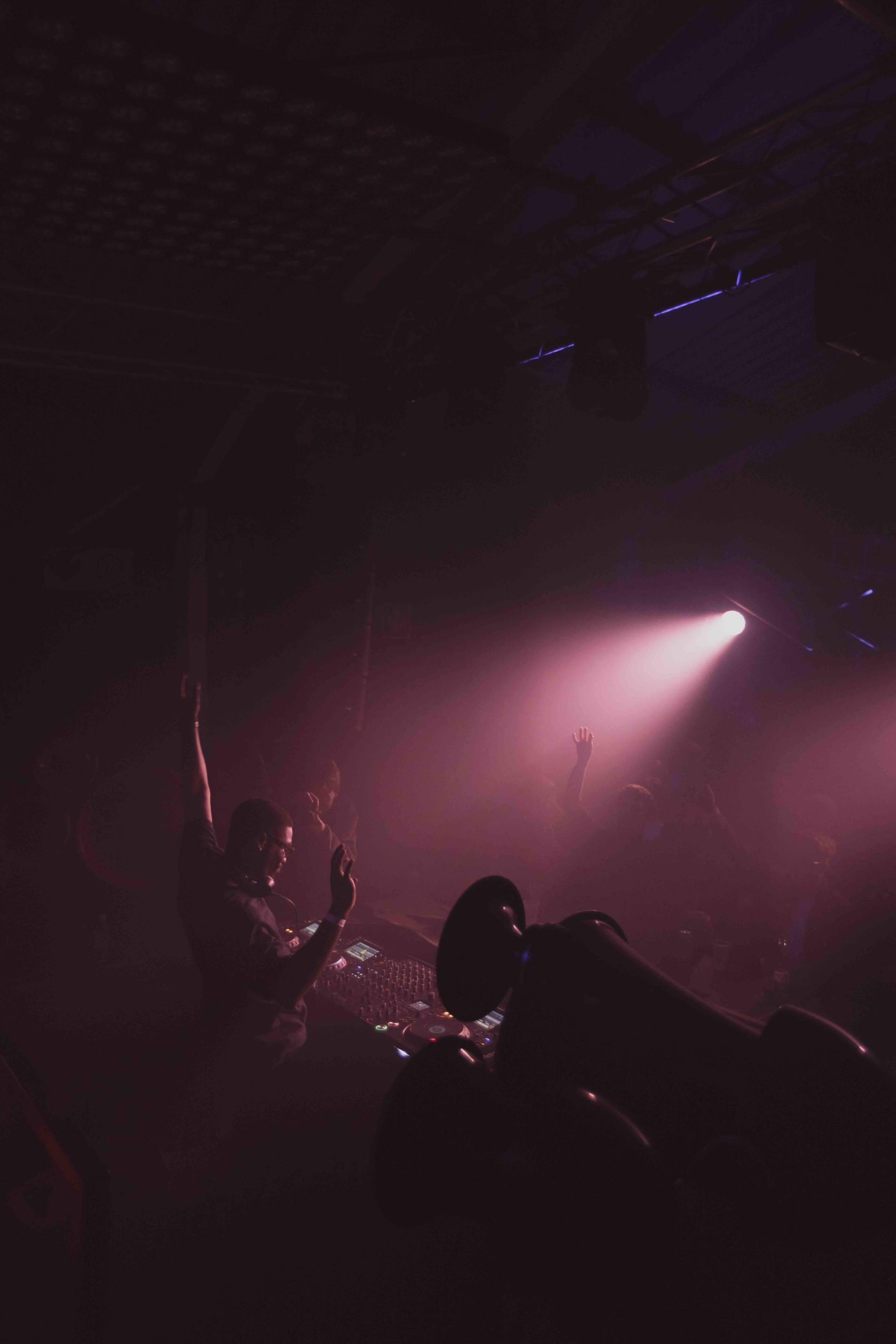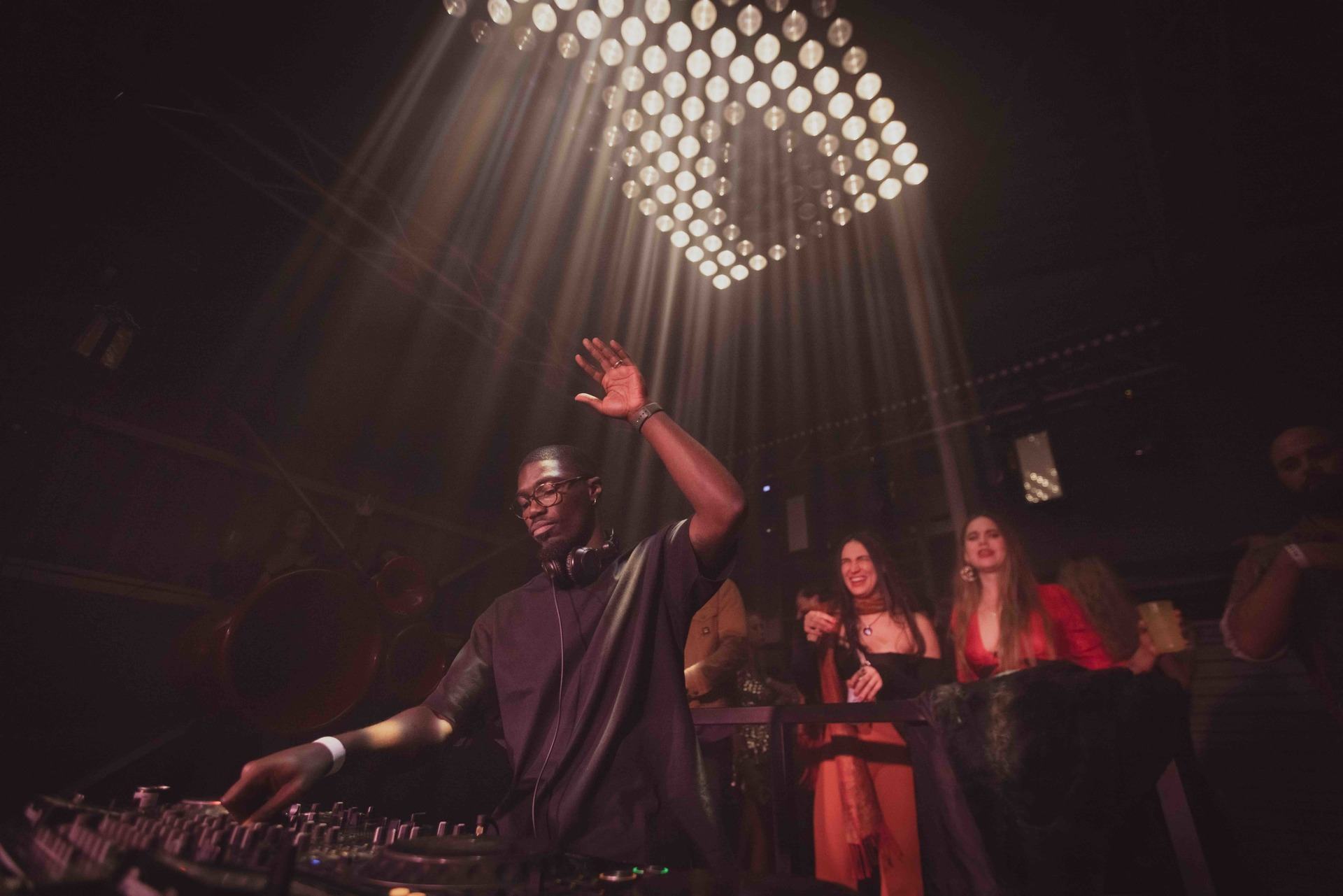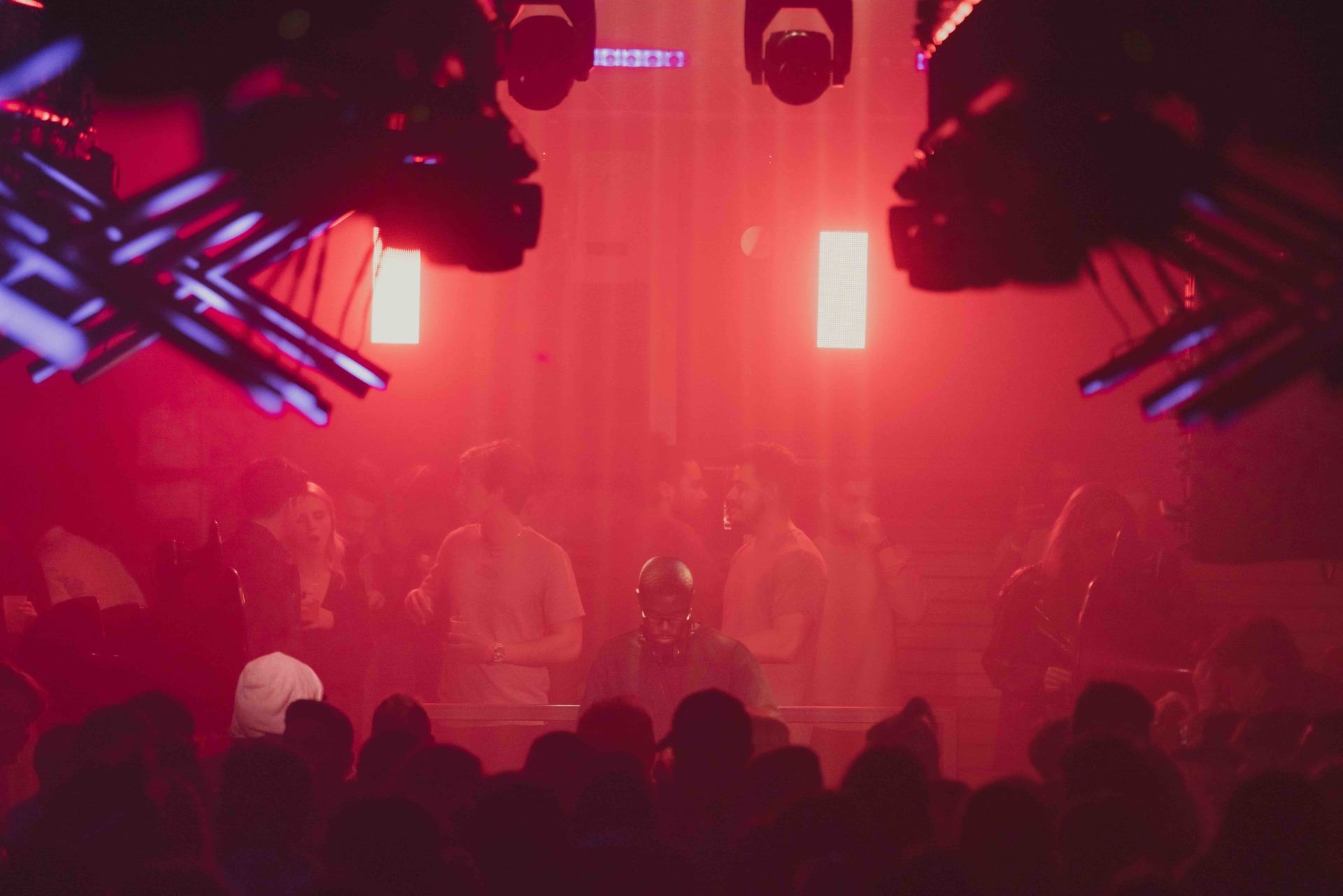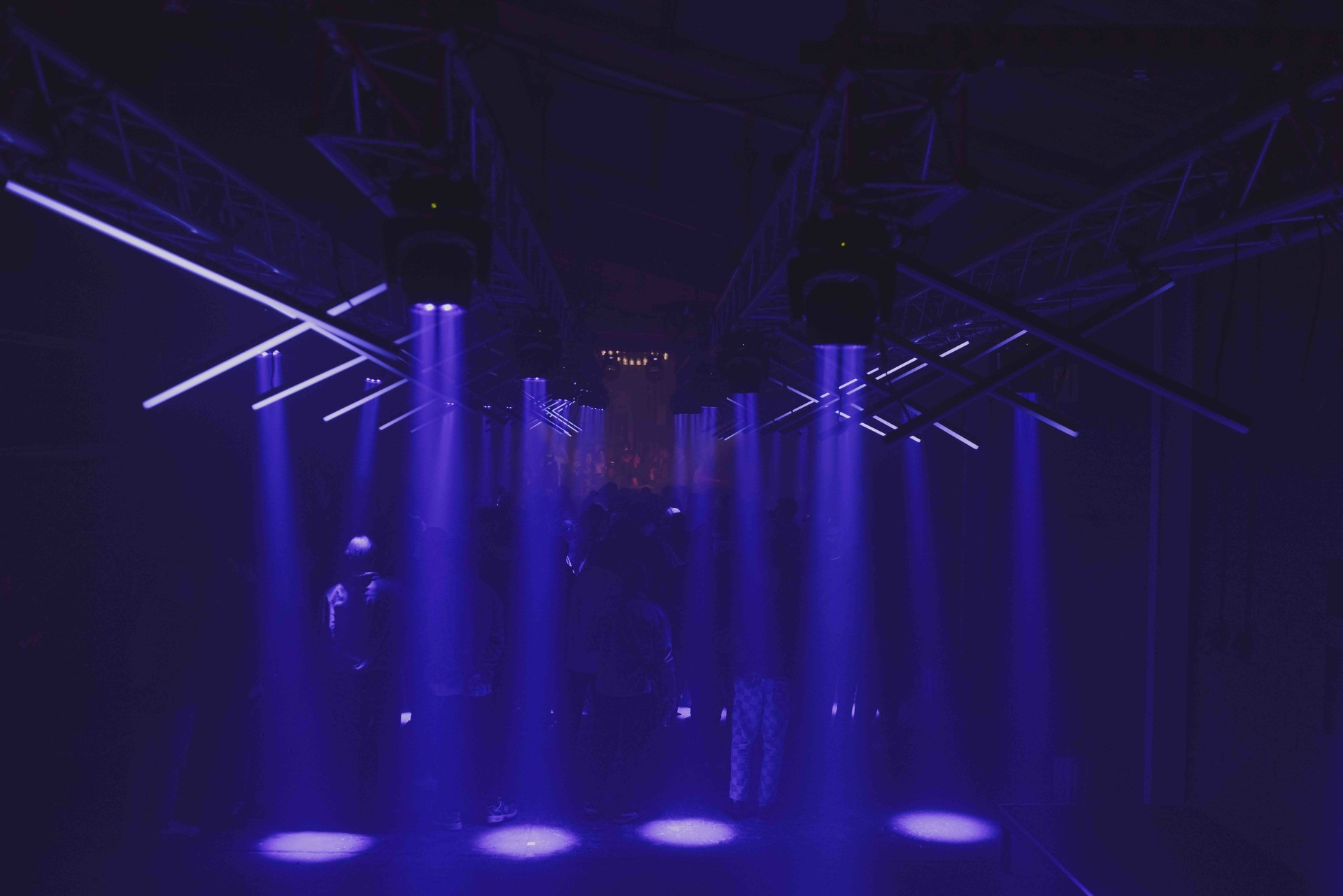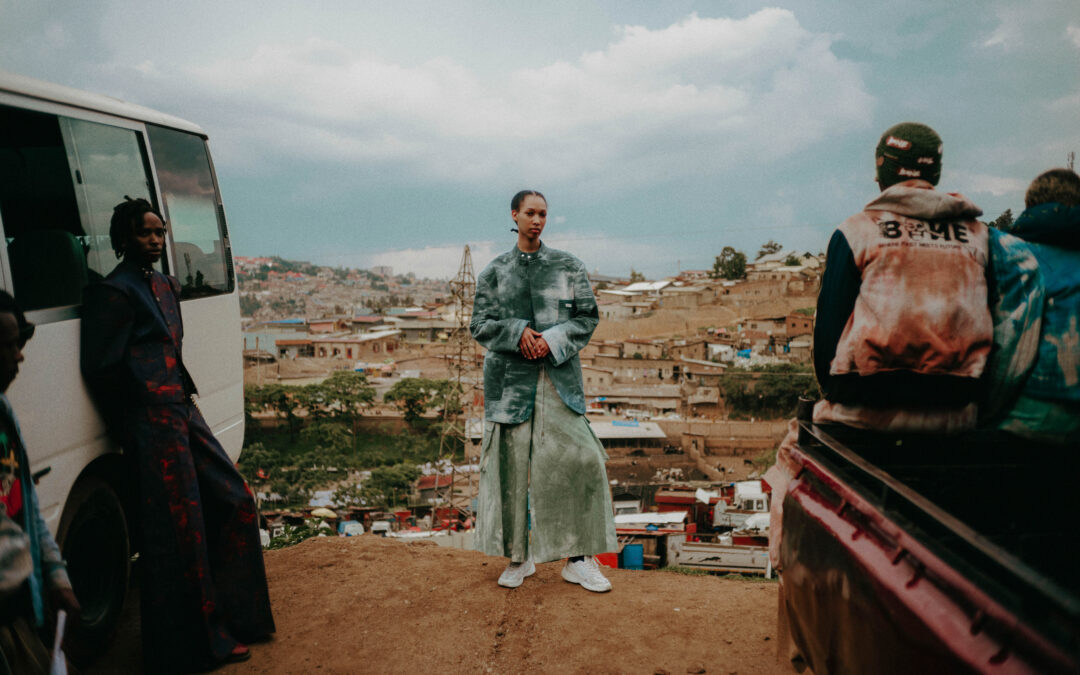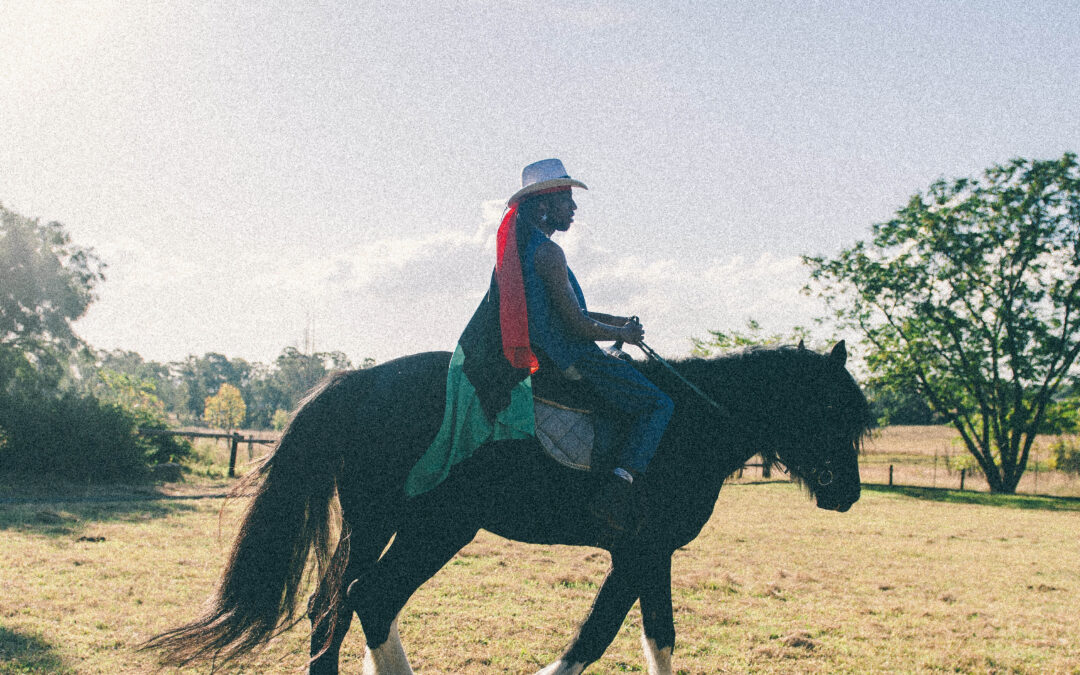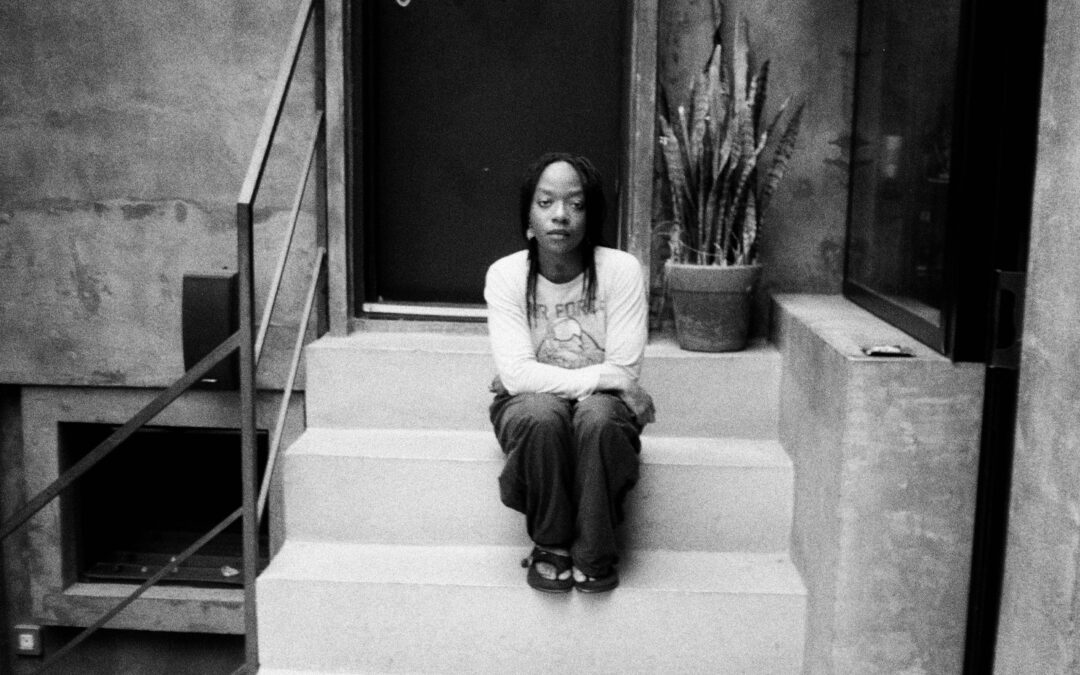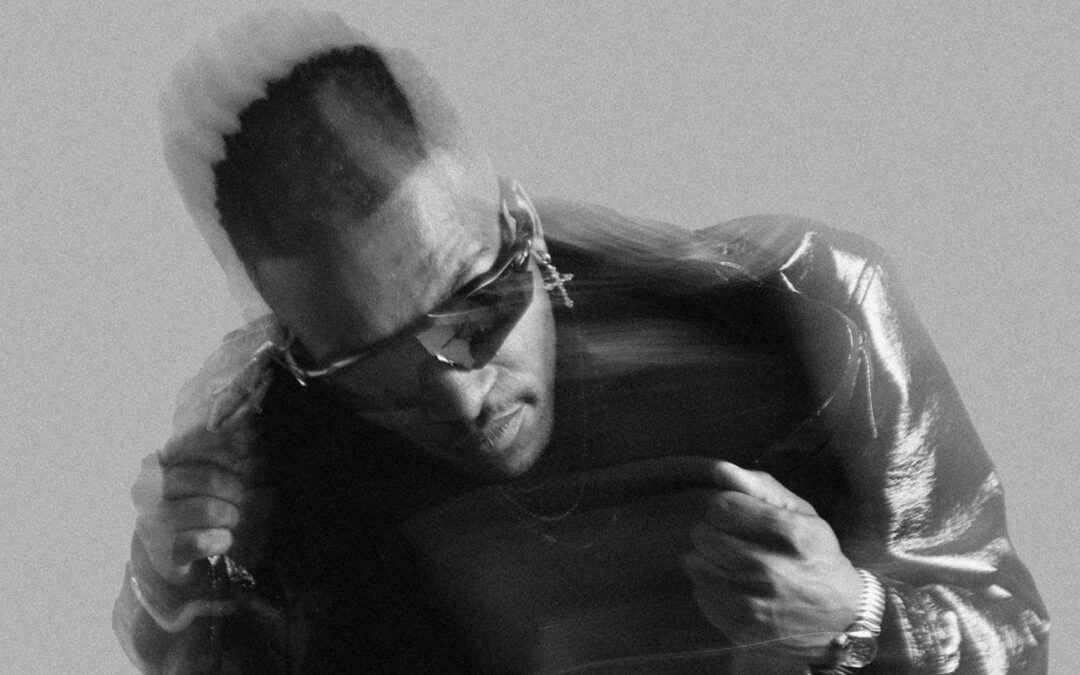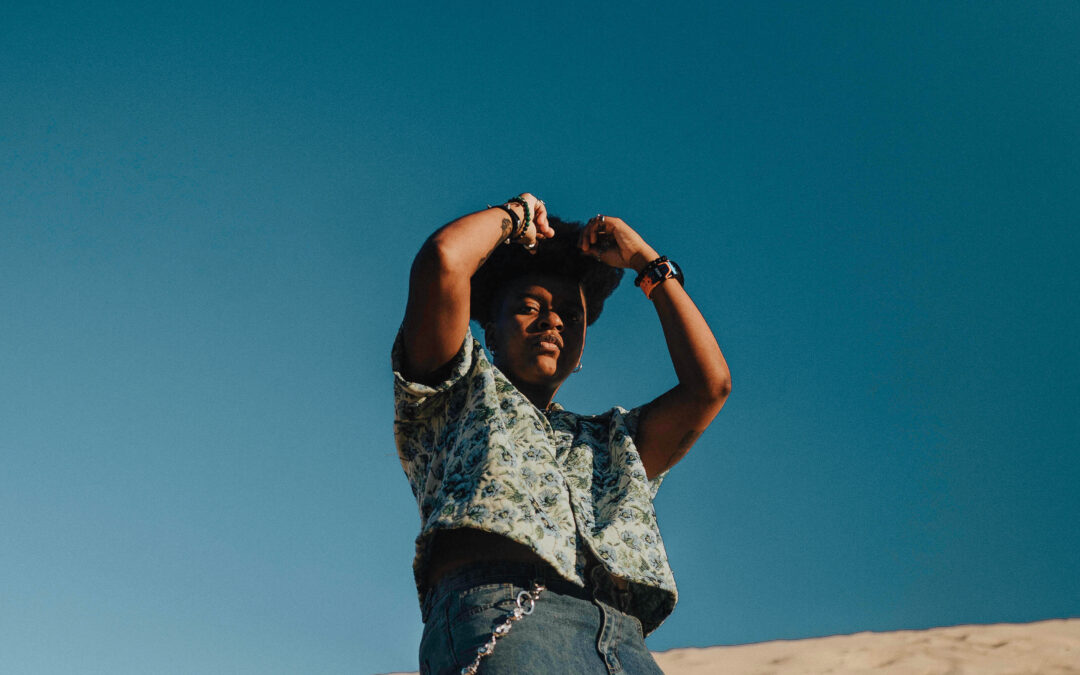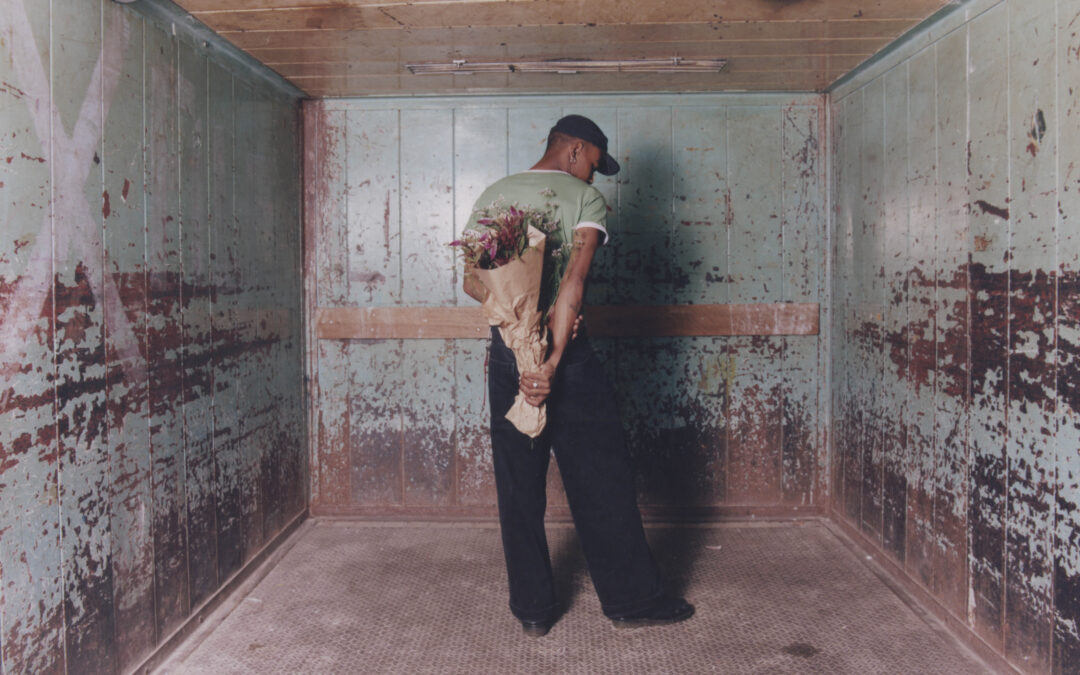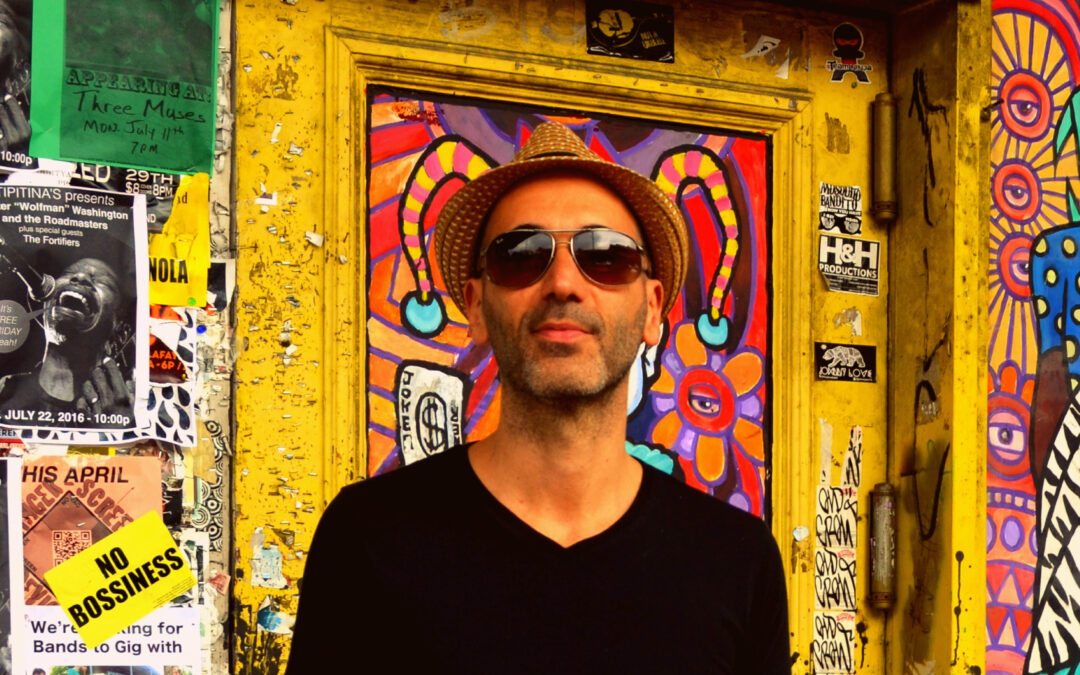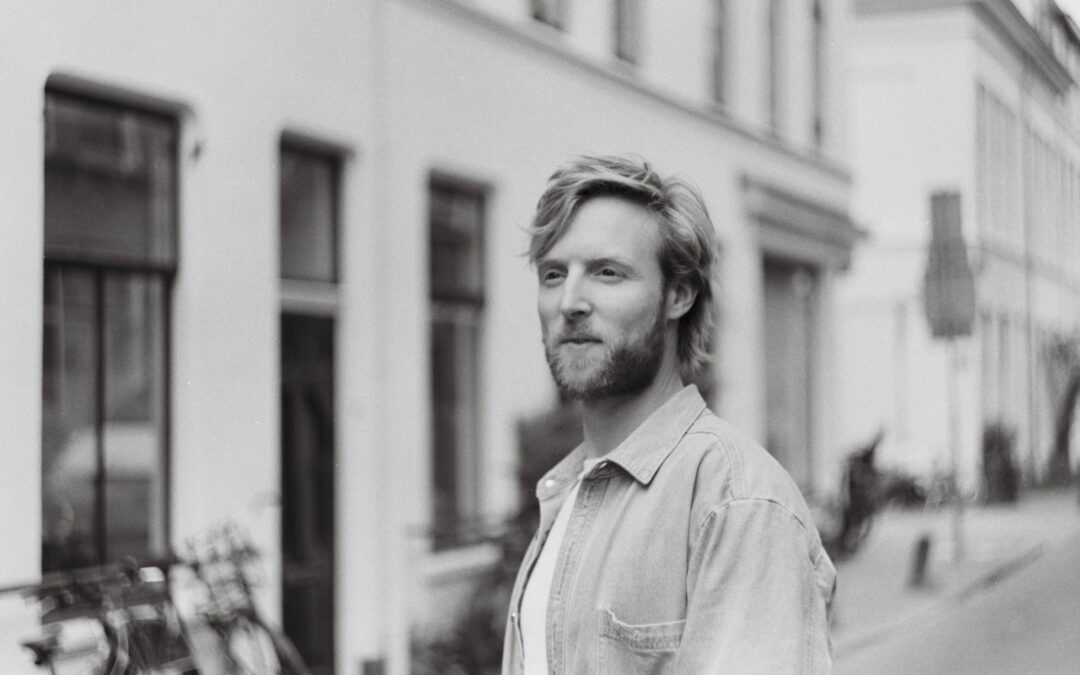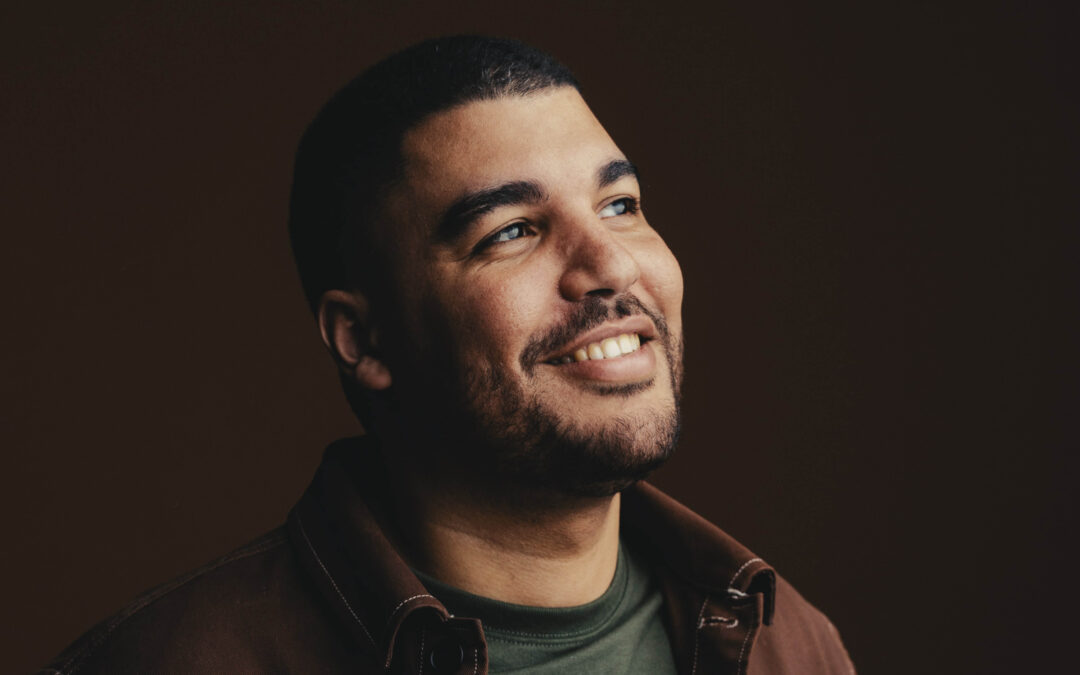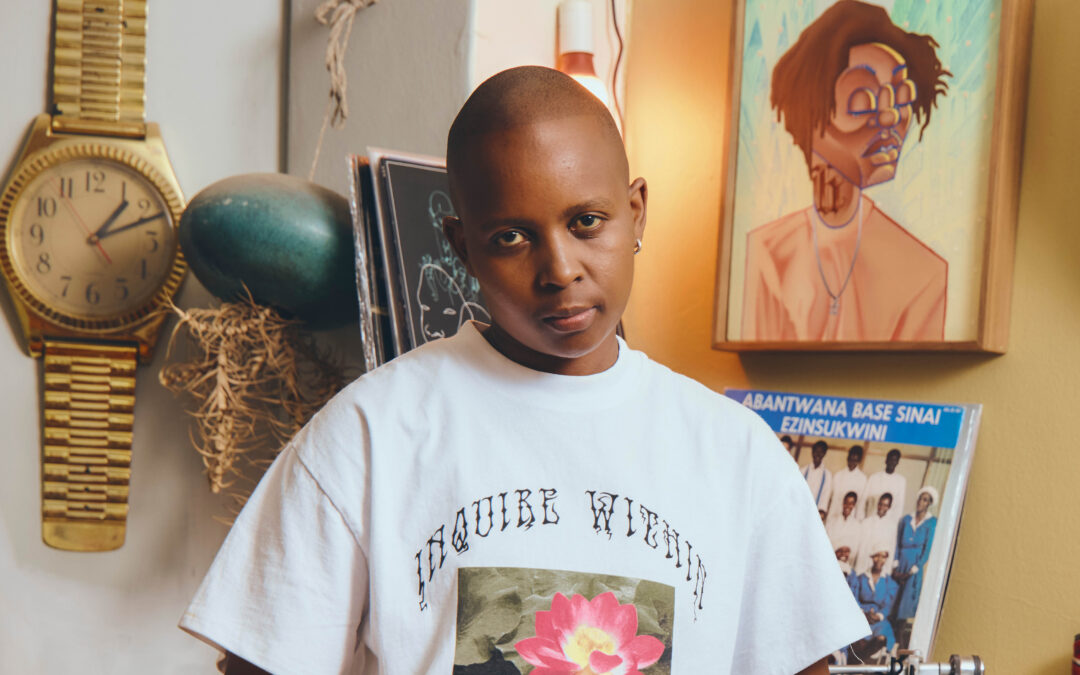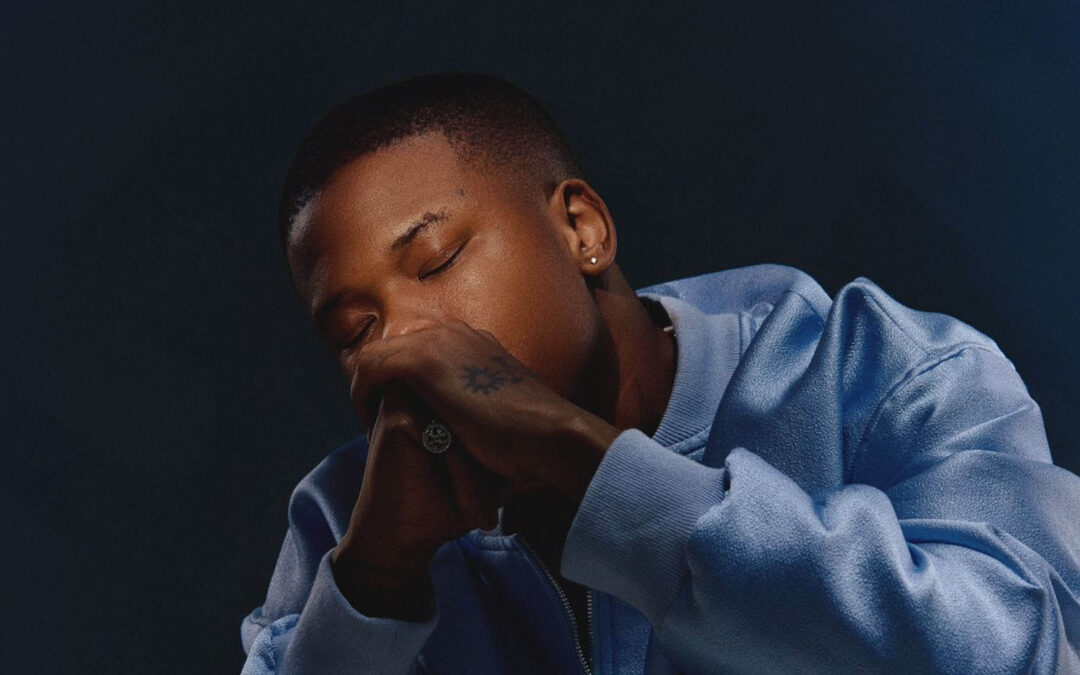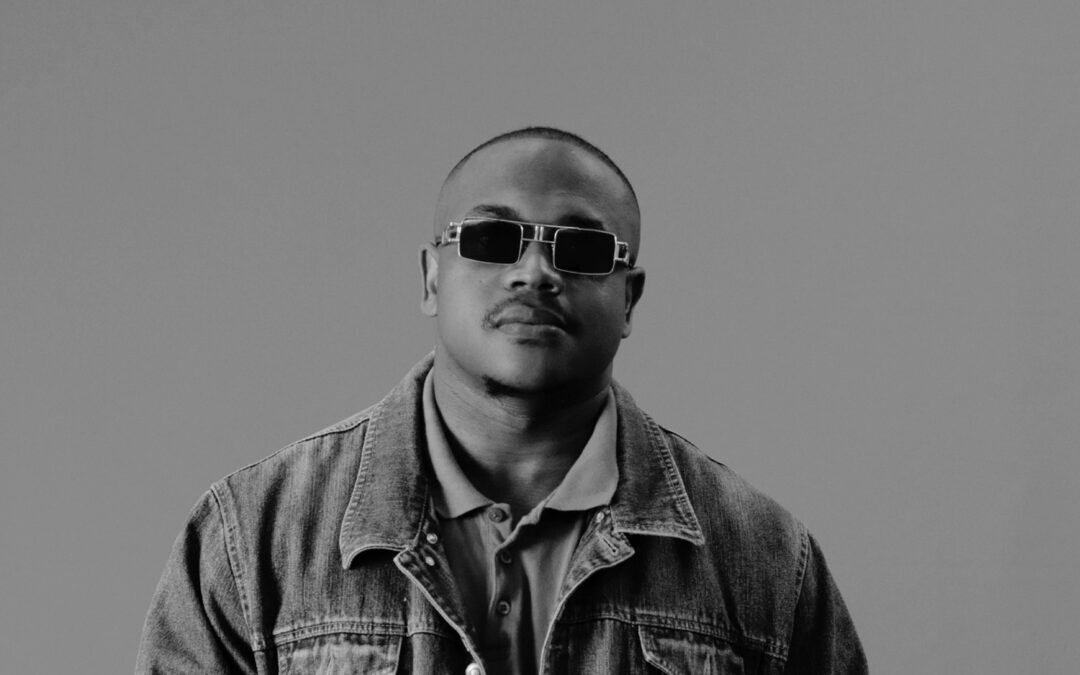From a rich lineage of 4/4 synthesised kick drums and a typical BPM (beats per minute) ranging from 120 to 140, characterised by repetitive beats, loops using percussion instruments, and heavy synthesisers, emerges artists like DJ and Producer, blaqkongo. He has established himself as a connoisseur through an onslaught of projects such as “Gemini Moon Phase” “Soul Gazing” “The Healers Song” “B_ U: Session 1 (With Koek Sista)” and “38 Days 38 Ways” with sprawling lead singles like “Be Free”, the latter of which he reflects as “a personal affirmation from my eight-year-old self“. Blaqkongo is redefining his vision for the modern dance floor – focused most importantly, on his audience captivated with original compositions and enthralling DJ sets.
Born to a Ghanaian mother and a Liberian father, this astute student of the craft perfected his skillset during an 8-year stint in Switzerland. Known affectionately as blaqkongo, Brendan was raised on influences like DJ Fresh, Vinny Da Vinci, Bossa Nova; basically, everything from the golden age of music that he could raid from his father’s collection. The passion he discovered from the music he grew up on seeped into his own vision to play and make music; compelling him to experiment with friends and create his first moniker, DJ Spoonz, a nod to his surname, Witherspoon. Of course, one’s musical journey is not devoid of spiritual growth and purpose-seeking. Under both nuances, seeking to step further into his purpose led him back to the essence, blaqkongo was born. The rest, as they say, is history.
In this interview, we delve into blaqkongo’s origins – from his approach to DJ sets, to reading a crowd, production techniques, his latest EP ‘38 Days, 38 Ways,’ ) and more.
Folks 26-08-2023 photograpphed by @kyle.kingsley
Q: To get started, I’d like to ask about your background & how you came to be a performer under your moniker, blaqkongo?
My Father is Liberian, and my Mother, Ghanaian. I grew up in Pretoria though, where I discovered my love for music. My dad is a massive music collector who put me onto house music. I remember going through his collection and finding the likes of Vinny Da Vinci, DJ fresh compilations, Bossa Nova and an array of jazz. When I was 18, I moved from Pretoria to Switzerland for 10 years, and around that time, I started DJing and playing around with music. I used to make music under the alias DJ Spoonz – a nod to my surname, Witherspoon.
After finishing my degree in Switzerland, I wanted to shift course and be more intentional with the direction that I was going. I moved to Cape Town about eight or nine years ago, where I really started taking music production, DJing and performing seriously. For me, it’s always been a notion of trying to express how I feel about music; very authentically, not in the sense of playing what I want, but playing with the energy that I feel through the music and that’s always been something quite true for me.
Q: How do you curate your setlists for different venues and crowds? What factors do you consider when selecting tracks to play?
I always tell people that I view playing a set as a handshake. There are things I like, there are things you want, so where do we meet in the middle? With my background and exposure to a lot of different and nuanced music, I have developed an appreciation for many genres and from that perspective; I always try to see how to inch my way towards the crowd I’m playing for. For example, I could be playing for a crowd that is slightly older and an avid fan of indie dance music; I’m not an indie dance collector, but there are nuances that I can appreciate about it. That’s where I dissect the sound, listen to the textures and ask myself which music in my collection could speak to these textures, how could I bring this to an indie dance listener? A lot of the time, that’s how you make it remain true to you.
Q: What is a giveaway of the genre that your crowd or audience is into?
I always wonder what people are missing or want more of. I try to arrive early to suss out the energy of the party before I start playing to evaluate how people are responding to what’s playing. What would I expect this crowd to enjoy when I play? If I look at the audience and it’s Deep House playing, but it’s a younger crowd, they look like they’re ready to party hard, I might say, “they’re bouncing around to this, but they’re not really tapping into that frenzied state of excitement. What might get them in that mood?” and then I start experimenting. The first 25-30 minutes of my sets are usually experimentation. Let me give them one disco track, how will they react? If I sneak in a Tech House song, how do they react? It’s a conversation so I play around and enjoy building off of that.
Q: With being so adaptable to genres, is there any particular genre of music that you are more drawn to than another?
If I had to pick, I’d say my roots lie in the classic ‘House’ genre – that’s what I grew up listening to, and it’s deeply ingrained in me. However, as I’ve matured, I am increasingly drawn to Minimal, Tech House and Techno. While I still have a soft spot for the deep and soulful vibes of my youth, there’s something about the energy of Minimal & Tech that I’m really connecting with at the moment. It’s refreshing and exciting, and I’m thoroughly enjoying exploring this wave of sound.
Q: How do you approach the use of effects and processing to add depth and dimension to your tracks without overpowering the mix?
That’s an excellent question. I’m still navigating this territory, really. When it comes to production, I’m still in the learning phase. There are countless ideas I want to express, but mastering the technical aspects is an ongoing process for me. Over time, I’ve noticed a shift in my approach. Initially, I preferred my songs to have a clean, minimalist sound. But I’ve realised that music doesn’t need to always exist in such a stripped-down form.
So, I’ve been exploring a lot of analogue gear with built-in effects such as reverbs and nuanced delays. My aim now is to strike a balance. I don’t want to overwhelm myself or the listener with effects, but I do want to add depth and texture to the music. I’ve been experimenting with incorporating subtleties to fill out the sonic space without overshadowing the main elements. I’m still figuring it all out. It’s a journey of discovery and growth, and I’m excited to see where it takes me.
Folks 26-08-2023 photographed by @kyle.kingsley
Q: Do you have a minimum or maximum BPM that you prefer to produce at?
Before returning to Cape Town, I was deeply immersed in producing ‘footwork,’ a Chicago-born genre known for its lively 160 BPM tempo. I was really into it! When I returned to South Africa, I encountered a stark contrast—the local house scene was cruising along at a much slower 116 BPM. It was a bit of a shock.
Initially, I struggled to find my groove, attempting to adjust my production style to match the slower tempo, hovering around 116 to 120 BPM for a while. But eventually, I found myself gravitating back towards higher tempos. It hit me that I’d been trying to confine myself to fit the market’s expectations, wondering how to make sense of this scene. Over time, I started to ask, why should I limit myself to fit into a specific mould?
I decided to cast aside the constraints of tempo, BPM, and the deep house scene. I chose to stay true to myself and produce with integrity. That, to me, is the essence of being a musician, an artist, a creative—granting ourselves the freedom to explore our creativity in its rawest and most authentic form. Embracing this mindset marked the beginning of a transformative journey for me over the past couple of years.
Q: With dynamic projects such as ‘38 Days 38 Ways’, can you discuss your approach to building and layering different elements in your tracks to create a cohesive and dynamic sonic landscape?
That project means a lot to me. It taught me a big lesson: the best ideas don’t always need ages to develop; they just need genuine intention. During lockdown, Mr. Blasé and I created this challenge for ourselves – every week, we’d make a beat, release it, and then get back to creating the next song. We called it “Beat A Week”and it went on for five and a half weeks straight. In that time, I birthed three of the tracks on “38 Days 38 Ways.” I gave it that title to honour the five and a half weeks it took to make, and the 38 different ways I showed up for what I love during that time.
The process was straightforward but powerful. Day one was all about letting loose and capturing whatever came to mind first – drums, keys, basslines, vocals, you name it. Day two was about arranging those pieces, like solving a puzzle, into something coherent. Day three was fine-tuning, giving each element its own space and depth. The rest of the time was used to mix and master each track.
What made it so beautiful was the lack of overthinking. With no specific audience or venue in mind – especially amid the COVID pandemic – I could just go with my gut. I’d ask myself, “What do I feel? What do I want to convey?” I’ve never had an experience quite like it since.
The closing track, “Be Free,” summarises the whole journey. It’s like a personal affirmation from my eight-year-old self, reminding me to follow through on what I believe is true to me, true to my essence, true to my visions.
Q: About your latest single, ‘The Line’ can you share any experiences where a happy accident or unexpected mistake during production with Mr. Blasé led to an interesting creative breakthrough?
The essence of the track is quite minimalist. Just a kick, a bassline, some high hats, a drum sample and my vocals. We were hunting for a cool, vibey bassline using this small but powerful piece of equipment called a Typhon Dreadbox, which I was still getting the hang of. While experimenting, I stumbled upon what I thought was a great patch, but a tweak ended up throwing everything off. Surprisingly, when we started playing, it meshed perfectly. That unexpected bassline, along with the kick and sampled drums, became the track’s signature. It’s probably one of the simplest songs I’ve ever made, but it’s unique because of it.
Collaborating with Mr. Blasé was a refreshing experience. We’d wanted to work together for years, but our tendency to overthink always got in the way. We agreed to keep it simple this time, going for an old-school Minimal and Tech house vibe. We ditched the urge to overcomplicate things, focusing on what mattered: solid drums, a straightforward structure, and vocals. Surprisingly, it worked. We’ve even tested it out in the club a few times, and it does exactly what we intended. The simplicity of it all, coupled with a fortunate accident, really paid off.
Q: Which African artists or producers would you say you want to collaborate with in the near future?
I’ve been reflecting on this, especially after doing a remix for Jas Artchild’s project about a year ago. He’s affiliated with Selville Records, run by Zito Mowa, who is known for some incredible releases on Stay True Sounds. Jas Artchild’s music, with its jazzy, soulful chords but futuristic energy, really resonates with me personally. There’s something about how he crafts melodies that speaks directly to all of me.
One track of his, ‘Astronomer’s Handbook,’ particularly stood out to me, and I remixed it. Reflecting on who I’d like to collaborate with, Jas is the first person who comes to mind. His music represents a niche that I deeply appreciate, but it also profoundly resonates with South Africans.
That said, I’ve also realised that my interests are leading me away from the local Deep House scene. I’ve understood that being skilled or able to do something doesn’t necessarily mean it’s what you’re meant to do. Finding a balance between what you’re good at and what truly fulfils you is essential to me. I’m also keen to work with Deep Aztec. He’s one of the country’s finest, unapologetically embracing diverse genres and tempos while staying true to himself.
Recently, I’ve been exploring collaborations with vocalists and spoken word artists. I have this idea of revisiting the essence of a lot of old-school house tracks where people would share club experiences and their love for music through spoken word segments. Growing up in that era of House, it’s a concept that I’ve got a lot of love for, and I’m eager to bring it to life using my own voice, or with the right collaborator. Lazarusman is another artist I’ve had my eye on for this idea.
Interestingly enough, I’ve been fortunate to collaborate with Thor Rixon, a true legend, on a track titled ‘Walk With Me,’ which was released in mid-February. We started working on this track 4 years ago and although it took us this long, it honours all the elements of electronic music that we both resonate with. We’ve even gone as far as creating a music video for it and I’m excited to finally share it with the world.
Q: Where do you see yourself taking your career in the next few years, and what are some of your goals or aspirations for the future?
I was discussing this recently, and my perspective on this has evolved over time. When I was younger, my musical aspirations revolved around creating my own space. That dream still holds true for me. My primary ambition was to establish a lounge where aspiring musicians, DJs, creatives from all walks of life could showcase their talent to an appreciative audience. There’s something profoundly meaningful about that vision that resonates with me deeply.
What truly captivates me about music is its ability to create bonds between people. While I find immense joy in the music, the real magic lies in discovering that others share that passion. It all comes back to the fundamental human desire for community. For me, the essence of being involved in music lies in fostering that sense of belonging.
Looking ahead, I am still determining where I’ll be in the music scene in five or even two years. Yet, my intention remains steadfast: to stay authentic, embrace freedom, and align myself with communities that resonate with my values. It’s about riding the wave of authenticity and connection wherever it may lead.
For now, I’ll launch an event in March called EXIST, and the premise is to host a series of nights and DJs where the format is no format. It’s not a Deep House, Techno, or an Afro Tech party – it’s whatever we want it to be. One night can focus on a Tech House lineup , but another might have a solid Disco lineup.
Folks 26-08-2023 photographed by @kyle.kingsley
Curating a sonic landscape that blurs the lines between past, present, and future, while weaving together a seamless fusion of classic influences and cutting-edge innovation, requires a rather underappreciated craftsmanship. Beyond the beats and melodies, the essence blaqkongo contributes to the culture is encapsulated by his profound connection to his audience—a shared experience that transcends language and culture, uniting strangers in a collective celebration of life, love, and liberation. Blaqkongo isn’t just a purveyor of music; he’s a catalyst for resonance, using his craft to break down barriers and build bridges between individuals from all walks of life.
Listen to ‘The Line’ ft. Mr Blasé HERE
Listen to ‘Walk With Me’ ft. Thor Rixon HERE
Listen to Blaqkongo’s discography HERE
Written by: King Cedric

